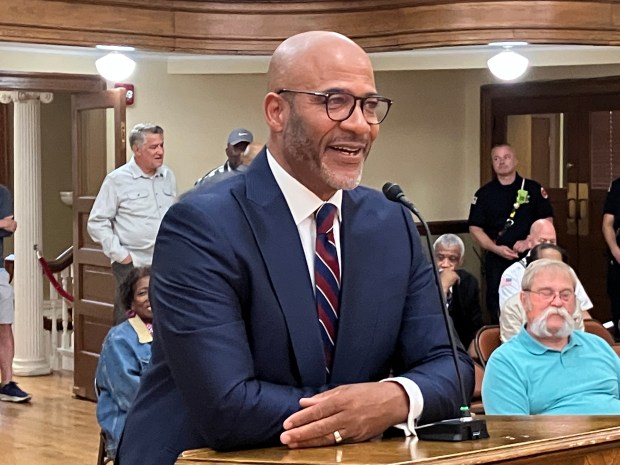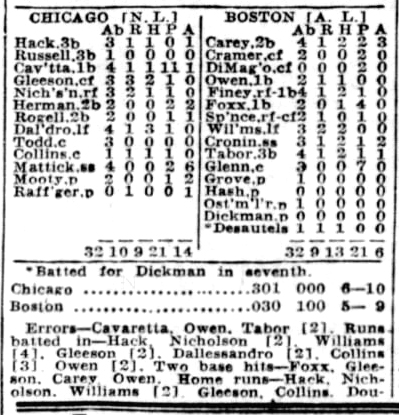Though Pace’s first full fleet of electric buses is designated for Lake County and its completion remains years away, a small 15-passenger bus with the words “battery electric” printed on it can now be seen on local streets.
While it is destined for the dial-a-ride program or paratransit passengers, Maggie Daly Skoggsbakken, Pace’s chief communications officer, said the bus’s current journeys are not yet transporting paying customers.
“It may have been part of a test,” Skoggsbakken said of a recent sighting. “Right now, it’s part of Pace’s ongoing testing program with this electric bus. The vehicle is still in testing, which includes road testing, and it may be seen in the field in different parts of the region.”
Pace is testing its small electric bus and operating a full-sized vehicle in Chicago’s south suburbs as it awaits the arrival of 22 more motor coaches late this year on its way to being a fully electric fleet by 2040, thus significantly reducing carbon emissions.
“It’s fully accessible,” Skoggsbakken said, referring to the 15-passenger vehicle.
First announcing plans to go all-electric in the next 16 years in March of last year, Lake County was designated as the location for the pilot program. Renovation of the bus garage on 10th Street in Waukegan to service and recharge — rather than refuel — the buses will also start soon.
With 22 new large buses being built specifically for Pace, Skoggsbakken said about half will be part of the fleet in Lake County, and the other half will be spread throughout the rest of the six-county Pace region. Passengers will not be riding immediately.
“They will all have to be tested,” Skoggsbakken said. “We hope the turnaround will be pretty smooth,” she added, expecting the quiet-riding vehicles will be traveling county roads in the first part of next year.
When the program was unveiled in March of last year, Pace officials said they anticipated electric buses on the road in Lake County before the end of this year, but the manufacturer — Protegra — closed its doors. Skoggsbakken said it was purchased by Phoenix Motorcars.
“They are making them now,” she said of Phoenix. “Everything is moving forward.”
Acquiring the buses is part of the conversion to an all-electric fleet. Skoggsbakken said renovating existing facilities like the Waukegan bus garage to service the electric buses is necessary, and will cost close to $100 million.
Phase 1 of the renovation — the estimated cost is more than $12.5 million — will start this year, and is scheduled for completion in 2025. Skoggsbakken said it will prepare the facility for actual construction.
“Facility modifications for electrification will design and construct electrical upgrades, site work and installation of charging infrastructure and a concrete outdoor storage area for 12 battery electric buses,” she said.
Once the first phase is complete, Skoggsbakken said the second stage will cost an estimated $80 million to rebuild the garage to accommodate a fully electric fleet. The North Division in Waukegan currently operates 52 buses.
As electric buses replace the gasoline-powered, internal-combustion engine vehicles, she said the impact on the environment will be better than it is now, as Pace already takes cars off the roads as people use mass transportation.
“There will be no emissions from these buses,” Skoggsbakken said. “As the emissions decrease and eventually go away, it will improve the environment.”
There may be a new wrinkle. The Illinois General Assembly introduced legislation Monday to combine Pace, Metra and the CTA into one agency. Skoggsbakken said she hopes Pace’s “thoughtful, foundational” work on the electric bus program will spare it from a delay. It will be a priority.
“A consolidation of agencies could certainly cause delays in implementation,” she said. “We are unsure how resources would be allocated for suburban capital investments under a centralized agency.”
Joining the 15-passenger bus on the road is a full-sized electric bus currently in operation along 95th Street in Broadview and the surrounding area in suburban Cook County. Skoggsbakken said it will be the only regular route until the new vehicles arrive late this year.
Along with Lake County, Pace operates bus routes in suburban Cook, McHenry, Will, Kane and DuPage counties.




